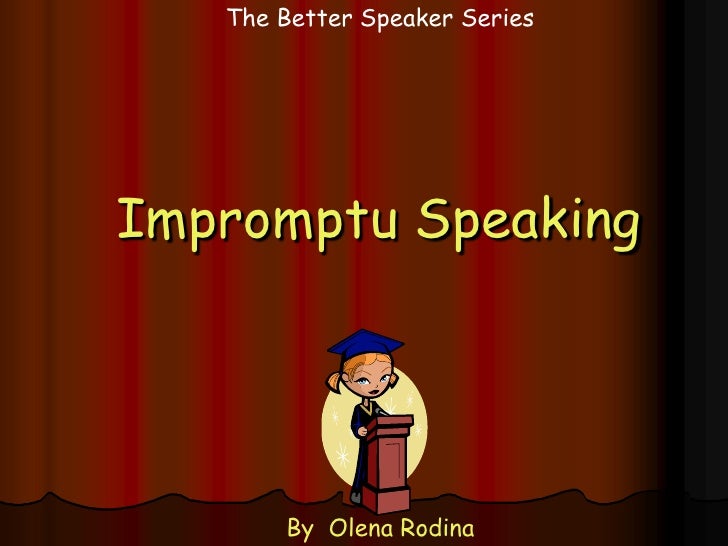A Room With A View.

A Room with a View is a 1908 novel by English writer E. M. Forster, about a young woman in the restrained culture of Edwardian era England. Set in Italy and England, the story is both a romance and a critique of English society at the beginning of the 20th century. Merchant-Ivory produced an award-winning film adaptation in 1985.
The Modern Library ranked A Room with a View 79th on its list of the 100 best English-language novels of the 20th century (1998).
A Room With A View - Trailer.
Invertebrate.

Invertebrates are animals that neither possess nor develop a vertebral column (commonly known as a backbone or spine), derived from the notochord. This includes all animals apart from the subphylum Vertebrata. Familiar examples of invertebrates include insects; crabs, lobsters and their kin; snails, clams, octopuses and their kin; starfish, sea-urchins and their kin; and worms. The majority of animal species are invertebrates; one estimate puts the figure at 97%.[1] Many invertebrate taxa have a greater number and variety of species than the entire subphylum of Vertebrata.[2]
Some of the so-called invertebrates, such as the Chaetognatha, Hemichordata, Tunicata and Cephalochordata are more closely related to the vertebrates than to other invertebrates. This makes the term "invertebrate" paraphyletic and hence almost meaningless for taxonomic purposes.
Ten Commandments.

The Ten Commandments, also known as the Decalogue, are a set of biblical principles relating to ethics and worship, which play a fundamental role in Judaism and Christianity. The commandments include instructions to worship only God, to honour one's parents, and to keep the sabbath, as well as prohibitions against idolatry, blasphemy, murder, adultery, theft, dishonesty, and coveting. Different religious groups follow different traditions for interpreting and numbering them.
The Ten Commandments are listed twice in the Hebrew Bible, first at Exodus 20:1–17, and then at Deuteronomy 5:6–21. Both versions state that God inscribed them on two stone tablets, which he gave to Moses on Mount Sinai. Modern scholarship has found likely influences in Hittite and Mesopotamian laws and treaties, but is divided over exactly when the Ten Commandments were written and who wrote them.
Mount Sinai.

According to the Book of Exodus, Mount Sinai (Hebrew: הר סיני, Har Sinai) is the mountain at which the Ten Commandments were given to Moses by God. In the Book of Deuteronomy, these events are described as having transpired at Mount Horeb. "Sinai" and "Horeb" are generally considered to refer to the same place, although there is a small body of opinion that the two names may refer to different locations.
Hebrew Bible texts describe the theophany at Mount Sinai in terms which a minority of scholars, following Charles Beke (1873), have suggested may literally describe the mountain as a volcano and have led to a search for alternative locations.[1]
Thou Shalt Have No Other Gods Before Me.

"Thou shalt have no other gods before me" is one of the Ten Commandments found in the Hebrew Bible (לא יהיה־לך אלהים אחרים על־פני; Exodus 20:3 = Deuteronomy 5:7).[1]
This commandment establishes the exclusive nature of the relationship between the nation of Israel and its national god, Yahweh the god of Israel,[2] a covenant initiated by Yahweh after delivering the Israelites from slavery through the plagues of Egypt and the Exodus.[3]
In a general sense, idolatry is the paying of divine honor to any created thing.[4] In ancient times, opportunities to participate in the honor or worship of other deities abounded. However, according to the Book of Deuteronomy, the Israelites were strictly warned to neither adopt nor adapt any of the religious practices of the peoples around them.[5] Nevertheless, the story of the people of Israel until the Babylonian Captivity is the story of the violation of the first commandment by the worship of “foreign gods” and its consequences. Much of biblical preaching from the time of Moses to the exile is predicated on the either-or choice between exclusive worship of God and false gods.[6] The Babylonian exile seems to have been a turning point after which the Jewish people as a whole were strongly monotheistic and willing to fight battles (such as the Maccabean Revolt) and face martyrdom before paying homage to any other god.[7]
Thou Shalt Not Commit Adultery.

"Thou shalt not commit adultery", one of the Ten Commandments, is found at Exodus 20:14 of the Tanakh and Old Testament. What constitutes adultery is not defined in this passage of the Bible, and has been the subject of debate within Judaism and Christianity. Some Jewish sources (Chizkuni, Ibn Ezra) say that this commandment forbids all sexually deviant acts, not only adultery.[1]
The Road Not Taken.

"The Road Not Taken" is a poem by Robert Frost, published in 1916 as the first poem in the collection Mountain Interval. Frost spent the years 1912 to 1915 in England, where among his acquaintances was the writer Edward Thomas. Thomas and Frost became close friends and took many walks together. After Frost returned to New Hampshire in 1915, he sent Thomas an advance copy of "The Road Not Taken."[1] The poem was intended by Frost as a gentle mocking of indecision, particularly the indecision that Thomas had shown on their many walks together. Frost later expressed chagrin that most audiences took the poem more seriously than he had intended; in particular, Thomas took it seriously and personally, and it may have been the last straw in Thomas' decision to enlist in World War I.[1] Thomas was killed two years later in the Battle of Arras.
The Great Gatsby.

The Great Gatsby is a 1925 novel written by American author F. Scott Fitzgerald that follows a cast of characters living in the fictional town of West Egg on prosperous Long Island in the summer of 1922. The story primarily concerns the young and mysterious millionaire Jay Gatsby and his quixotic passion and obsession for the beautiful former debutante Daisy Buchanan. Considered to be Fitzgerald's magnum opus, The Great Gatsby explores themes of decadence, idealism, resistance to change, social upheaval, and excess, creating a portrait of the Jazz Age or the Roaring Twenties that has been described as a cautionary tale regarding the American Dream.[1][2]
The Great Gatsby (1974) - Movie Trailer.
Aesop.

Aesop (/ˈiːsɒp/ ee-sop; Ancient Greek: Αἴσωπος, Aisōpos; c. 620 – 564 BCE) was an Ancient Greek fabulist or story teller credited with a number of fables now collectively known as Aesop's Fables. Although his existence remains uncertain and no writings by him survive, numerous tales credited to him were gathered across the centuries and in many languages in a storytelling tradition that continues to this day. Many of the tales are characterized by animals and inanimate objects that speak, solve problems, and generally have human characteristics.
Petite Size.

In fashion and clothing, a petite size is a standard clothing size designed to fit women of shorter height, typically 162 cm (5 ft 4 in). Regular female sized clothing is designed for a woman at least 165 cm (5 ft 5 in) tall (without shoes) and will not fit a woman of significantly shorter height well. Even if the bust, waist and hip circumferences are appropriate, the sleeve lengths, leg inseam lengths and vertical torso measurements (such as the back length and bust-waist length) must be altered significantly to fit well. Non-petite size dresses cannot be easily altered to produce the equivalent petite size, since, in general, these lengths (particularly the critical torso measurements) cannot be altered without introducing an unsightly seam. Significant errors in the torso measurements will make a well-fitted look impossible, e.g., if the bust-point darts are off by three inches.
Parable of The Prodigal Son.

The Parable of the Prodigal Son (also known as the Lost Son, Running Son, Loving Father, or Lovesick Father)[1][2] is one of the parables of Jesus which appears in Luke 15:11-32. Jesus Christ shares it with his disciples, the Pharisees and others.
In the story, a father has two sons. The younger son asks for his inheritance and after wasting his fortune (the word "prodigal" means "wastefully extravagant"), becomes destitute. He returns home with the intention of begging his father to be made one of his hired servants, expecting his relationship with his father is likely severed. The father welcomes him back and celebrates his return. The older son refuses to participate. The father reminds the older son that one day he will inherit everything. But, they should still celebrate the return of the younger son because he was lost and is now found.
Parable of The Good Samaritan.

The parable of the Good Samaritan is a didactic story told by Jesus in Luke 10:25–37 . It is about a traveler (who may or may not have been a Jew[1]) who is stripped of clothing, beaten, and left half dead alongside the road. First a priest and then a Levite comes by, but both avoid the man. Finally, a Samaritan comes by. Samaritans and Jews generally despised each other, but the Samaritan helps the injured man. Jesus is described as telling the parable in response to the question from a lawyer, "And who is my neighbour?" whom Leviticus Luke 10:25–37says should be loved. Jesus answers his question in who is his neighbour, but also tells him to love his neighbour.[2] His answer corresponds to his words the Gospel of Matthew 5:43-48, to love his enemy.
Portraying a Samaritan in a positive light would have come as a shock to Jesus' audience.[3] It is typical of his provocative speech in which conventional expectations are inverted.[3]
Vocabulary.
1. Impromptu.

Pronunciation: ɪmˈprɒmptju
Definition: adjective
2. produced or done without care or planning; improvised
Examples Sentences: The actors had volunteered to give an impromptu entertainment to while away the evening.
2. Amateur.

Pronunciation: ˈæmətə
Definition: noun
1. a person who engages in an activity, esp a sport, as a pastime rather than professionally or for gain
3. a person unskilled in or having only a superficial knowledge of a subject or activity
3. Amoral.

Pronunciation: eɪˈmɒrəl
Definition: adjective
1. having no moral quality; non moral
2. without moral standards or principles.
1. having no moral quality; non moral
2. without moral standards or principles.
Examples Sentences: She was amoral but honest; and frank, sometimes to the point of embarrassment.
4. Abnormal.

Pronunciation: æbˈnɔːməl
Definition: adjective
1. not normal; deviating from the usual or typical; extraordinary
2. informal odd in behaviour or appearance; strange
Examples Sentences: But the murder of another human being is something abnormal and sickening.
5.Apathy.

Pronunciation: æpəθɪ
Definition: noun
6. Invertebrate.

Pronunciation: ɪnˈvɜːtɪbrɪt
Definition: noun
1. any animal lacking a backbone, including all species not classified as vertebrates.
2. of, relating to, or designating invertebrates
Examples Sentences: "I'll give you one last chance to surrender, you slimy Kylothian invertebrate ," Kay snarled, his voice barely above a whisper.
7. Inveterate.

Pronunciation: ɪnˈvɛtərɪt
Definition: adjective
1. long established, esp so as to be deep-rooted or ingrained ⇒ an inveterate feeling of hostility.
2. obsolete full of hatred; hostile
Examples Sentences: My home, my ancestral home, my old and inveterate Garay Street home!
8. Monotheism.

Pronunciation: mɒnəʊθɪˌɪzəm
Definition: noun
1. the belief or doctrine that there is only one God
Examples Sentences: There is a further problem; whether monotheism is of very early occurrence.
9. Tenant.

Pronunciation: tɛnənt
Definition: noun
1.a person who holds, occupies, or possesses land or property by any kind of right or title, esp from a landlord under a lease
2. any holder or occupant
Examples Sentences: A summer storm was rolling in; his tenant farmers would be rejoicing.
4. Abnormal.

Pronunciation: æbˈnɔːməl
Definition: adjective
1. not normal; deviating from the usual or typical; extraordinary
2. informal odd in behaviour or appearance; strange
Examples Sentences: But the murder of another human being is something abnormal and sickening.
5.Apathy.

Pronunciation: æpəθɪ
Definition: noun
1. absence of interest in or enthusiasm for things generally considered interesting or moving
2. absence of emotion.
Examples Sentences: Nellie Jean was a regular visitor but not even she could rouse Roderick from his apathy.6. Invertebrate.

Pronunciation: ɪnˈvɜːtɪbrɪt
Definition: noun
1. any animal lacking a backbone, including all species not classified as vertebrates.
2. of, relating to, or designating invertebrates
Examples Sentences: "I'll give you one last chance to surrender, you slimy Kylothian invertebrate ," Kay snarled, his voice barely above a whisper.
7. Inveterate.

Pronunciation: ɪnˈvɛtərɪt
Definition: adjective
1. long established, esp so as to be deep-rooted or ingrained ⇒ an inveterate feeling of hostility.
2. obsolete full of hatred; hostile
Examples Sentences: My home, my ancestral home, my old and inveterate Garay Street home!
8. Monotheism.

Pronunciation: mɒnəʊθɪˌɪzəm
Definition: noun
1. the belief or doctrine that there is only one God
Examples Sentences: There is a further problem; whether monotheism is of very early occurrence.
9. Tenant.

Pronunciation: tɛnənt
Definition: noun
1.a person who holds, occupies, or possesses land or property by any kind of right or title, esp from a landlord under a lease
2. any holder or occupant
Examples Sentences: A summer storm was rolling in; his tenant farmers would be rejoicing.
沒有留言:
張貼留言